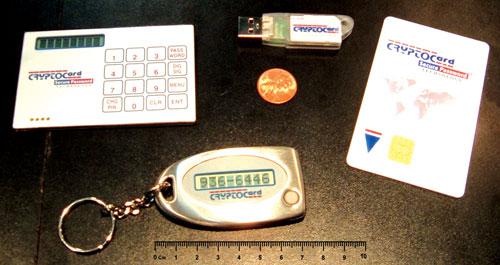Protect yourself from cyber-crime – Phuket Business

PHUKET: As an expatriate living in a foreign country, you are particularly vulnerable to cyber-crime as you probably use the Internet to access your financial accounts and the statements associated with those accounts. With that in mind, here are ten tips to help you foil potential cyber-criminals:
Security starts with your financial institution
Although it’s inconvenient, your financial institution should have installed multiple layers of security or steps (e.g. passwords, personal questions only you can answer etc.) before even you can access your accounts. Plus, they should have advanced encryption software and firewalls installed. Moreover, there should be a secure way once you are logged into your account to send messages to and receive messages from your financial institution.
Know your rights and obligations
Make sure you have a clear understanding of what your rights (e.g. insurance against fraud) and obligations are in the jurisdiction your financial institution is based in should there be unauthorized access to or transactions using your financial account.
Ensure your technology devices are secure
Be sure to have the most up-to-date browser, anti-virus and spyware software installed on all of your technology devices and that you have the firewalls enabled. If you have more than one device, designate one that rarely (if ever) leaves your home to log-on to financial accounts or the email address associated with your accounts.
Have a super-secure email for financial accounts
Don’t use the same email you use for personal correspondence, social media or one that you regularly provide to online sources as the email you give to your financial institutions. Moreover, never log onto that email address from an unsecure device on a Wi-Fi hotspot without a password.
Use different user names, passwords or PINs
Don’t use the same user names or PINs for email, social media or any type of non-important online account for your financial accounts.
Keep your account info in a safe place
Ideally, you should memorize all your account numbers, user names and passwords. Realistically, you should write this information down and store it in a safe place. And remember, it’s not just cyber-criminals you need to protect this information from, as ordinary criminals, housekeepers and even friends or family could misuse it too.
Download and store financial statements in a safe place
Should your account be compromised or locked for suspicious activity and you are an expat in a foreign country, getting the matter resolved will not be easy. However, having the latest financial statements downloaded and stored in a safe place will help you to verify your identity with your financial institution and regain access to your accounts as quickly as possible.
Beware of Wi-Fi hotspots
Cyber-criminals have been known to set up phony hotspots for unwary tourists or expats in airports, hotels or elsewhere – meaning you should never log on to any unfamiliar or unsecure Wi-Fi network and then log on to personal email or financial accounts.
Beware of phishing schemes
Phishing schemes targeting expats can range from the ubiquitous emails your spam folders usually collect, to actual phone calls or text messages. So before you give out any personal information in response to an email, phone call or SMS, be sure to confirm it’s actually from your financial institution.
Remember, most legitimate financial institutions will not contact you in this way and even if you do receive an email that appears to be from your financial institution (like one notifying you that your online statement is now available), don’t click on any link in it as it might install malware on your device or take you to a phishing website.
Be careful with social media
No matter how tempting it is to rant online or on social media about a financial institution, you probably have enough information on your social media accounts to make it easy for cyber-criminals or even someone you know to try and access your accounts.
Moreover, there are a number of background check services that could reveal enough missing information about you to enable a savvy cyber-criminal or someone you know to access your financial accounts.
Don Freeman is president of Freeman Capital Management, a Registered Investment Advisor with the US Securities Exchange Commission (SEC), based in Phuket, Thailand. He has over 15 years experience and provides personal financial planning and wealth management to expatriates. Specializing in UK and US pension transfers. Call 089-970-5795 or email: freemancapital@gmail.com. Call to discuss ways to reduce portfolio fees and get your account growing efficiently.
Keep checking our online Phuket Business pages, join our Facebook fan page or follow us on Twitter @PhuketGazette for local and national business news.
— Don Freeman
Latest Thailand News
Follow The Thaiger on Google News:


























